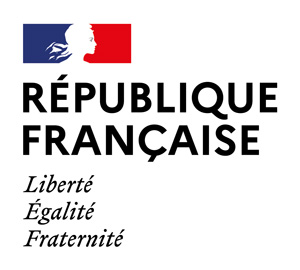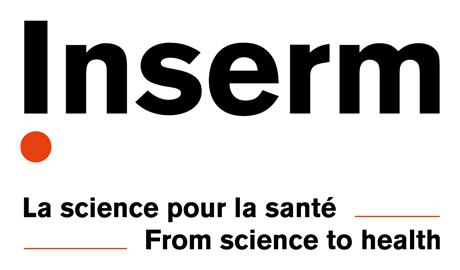Henri Mondor hospital is the second hospital in the Paris area and is internationally recognized for its pilot research on biotherapies for neurodegenerative diseases, such as neuronal grafts (HD) and gene therapy (PD, HD). The resources available on site make it particularly suitable for translational research projects.
Patients and Expertise :
Node 3 attracts patients from a large geographical area which densely populated (2 millions). Several cohorts of patients followed in our centre are worth mentioning as three of these multicentre cohorts have been granted by the “Investissements d’avenir” call for proposals from the National Research Agency. One includes patients with severe psychiatric disorders (PSY-COH, Pr Leboyer). These patients are all assessed in the innovative network of expert centres for psychiatric disorders that our team has created in France (funded by the Ministry of Health) and in Europe (ENBREC, funded by FP7, Pr Henry). Node 3 is also responsible for the biobank and biomarker study of an FP7 project aiming at following up patients with first episode psychosis (OPTIMISE). In addition, Node 3 belongs to the OFSEP (Multiple Sclerosis) and RADICOH (rare diseases) granted cohort projects. This centre has also a strong activity in the dementia field and more than 1500 parkinsonian patients are followed on site. This enrolment goes beyond regional borders thanks to node 3’s acknowledged expertise in experimental treatments of this disease. Indeed, Node 3 follows a cohort of more than 500 parkinsonian and tremorous patients treated with deep brain stimulation (DBS). In addition, node 3 coordinates the “rare disease” (Health Ministry label) centre for Huntington’s disease that follows 15% of French patients and is headed by Pr Bachoud-Levi who coordinates several therapeutic and cognitive international studies in this disease.
Clinical research units and topics :
Node 3 hosts 5 research teams (quoted by AERES A+ or A) and has close relationships with the CEA research centre (Node 1). The Neuroscience dept. has produced 506 articles from 2006 to 2010, including several papers in major scientific journals. Main topics are the following :
- The interface between basic research in cognition and clinical research on brain therapies. The neuroanatomical bases of human-specific functions such as language and social cognition and the impact of restorative therapies (i.e. grafts) on these functions.
- Biotherapies in neurodegenerative diseases (Huntington, Parkinson), including cell and gene therapies as well as brain stimulation.
- Identifying genetic and environmental risk factors of major psychiatric disorders. This is being performed within national networks using a scientific foundation (FondaMental) supported by the Ministry of Research and gathering 40 research labs and 30 psychiatric departments.
- Understanding the pathophysiology of neuromuscular disorders and using biotherapies to restore muscular function in rare muscular diseases in the adult.
Existing Platform(s)
Our centre is currently organising neuroscience clinical research around two platforms. Both platforms are dedicated to both neurological and psychiatric patients and are supported by a methodological and biostatistical team (research centre).
The Neuropsychiatric evaluation platform “PERENE”
This platform is located within the short duration hospitalisation structure (day/week stay). All tools dedicated to evaluate cognitive, psychiatric, motor troubles in the patients as well as functional imaging (MRI, PET); neurophysiology units are made available for the cohorts mentioned above. The following specific domains are of particular expertise in our centre and may be considered as domains of expertise:
- Cognition, language, social cognition (Pr Bachoud-Levi and her team)
- athophysiology and treatment of Bipolar disorder and Depression, High-functioning autism, schizophrenia (Pr Leboyer and her team)
- Functional imaging (Pr Remy)
- Neurophsyiology (Pr Lefaucheur)
- Sleep (Dr Drouot)
- Tremor assessment (Pr Palfi and his team)
The Innovative/biotherapy therapeutic platform “PLATINN”
This platform is structured around the functional neurosurgery team. It is dedicated to innovative treatments of neurodegenerative or psychiatric disease and is based on several strategies:
- Cell therapy: foetal cell grafts have been performed in our centre from 1991 and are still ongoing for specific programs in PD and HD. In addition, our centre is ready to settle the use of stem cells for brain grafts. This is further made possible by the support of the Investigation clinical centre – Biotherapy and from the Cell therapy centre (see below).
- Gene therapy: We have performed a gene therapy trial in 2002 with encapsulated cells modified to produce CNTF (trophic factor) in HD. Direct gene therapy using a lentiviral vector derived from the Equine Infectious Anaemia Virus (EIAV) is ongoing in advanced PD. The therapeutic rationale is to provide dopamine replacement to the dopamine-depleted putamen of PD patients by gene transfer of the three critical enzymes involved in the dopamine biosynthesis pathway (Prosavin trial). In addition, a gene therapy program is planned for HD patients using a lentiviral vectors transferring the gene encoding for neurotrophic factorCNTF. Finally, our centre is selected to participate to an American based gene therapy trial in HD.
- Brain stimulation: Beside the clinical practice of deep-brain stimulation for PD and tremor, for which our centre is a national leader, we are studying new MR imaging sequences to better visualize basal ganglia nuclei. Studies of the impact of bilateral deep brain stimulation on sleep disturbances are ongoing in PD and essential tremor patients. A spinal cord stimulation program is planned for advanced PD patient. Deep brain stimulation and cortical stimulation approaches are also planned for psychiatric disorders such as obsessive-compulsive disorders (OCD) and attractable depression.
- The following specific domains are of particular expertise in our centre:
- Gene therapy (Pr Palfi, Pr Remy)
- Cell therapy (Pr Bachoud-Levi, Pr Palfi, Pr Remy, Pr Cesaro)
- Cortical stimulation (Pr Palfi, Pr Lefaucheur)
- Physical rehabilitation (Pr Gracies)
The Biostatistical team
This methodological team is a support for Neuropsychiatric research and is headed by Dr Maison (MCU-PH). They provide support for cohort management and therapeutic trial design, quality control, data management and statistical analyses
Platform(s) equipments :
Other Supportive Research structures of the Hospital :
The CIC-BT (Clinical Investigation Centre-BioTherapies) provides a support for innovative research programs and specifically for therapeutic trials. In addition, the Mondor Hospital CIC is one of the few CIC having a unit dedicated to biotherapies. The CIC-BT provides research nurses, research monitoring, quality control and data management.
- EFS (French Blood Organization) and the Cell Therapy centre: this structure is unique in the Paris area and is dedicated to the production of cells for transplantation in GMP conditions. This centre is a major support for the cell therapy programs in PD and HD and has been selected to provide stem cells in GMP conditions for all Paris area in the near future.
- The Biological Research Centre (CRB) is a tool dedicated to biobanks, biocollections of cells, blood, fluids and tissue. It provides support for the search for biomarkers in the cohorts of patients followed in the Hospital for clinical research purposes.
- Surgery research centre: is a unique tool in Paris Region to help surgeons of different specialty to do technical research using high-level environment (surgery rooms) and animals. It is a place where the future of surgical techniques emerges.
Other Equipments :
- Neuropsychology units
- Imaging equipments (MRI 3T, MRI 1.5T ; PET-CT ;SPECT (2))
- High-tech Walk platform
- Eye tracking systems
- Neurophysiological unit including rTMS tools and abnormal movement recordings
- Sleep unit sleep physiological investigations, high density EEG
- Neurosurgery rooms with high-level material needed for stereotactic surgery
Visit website





